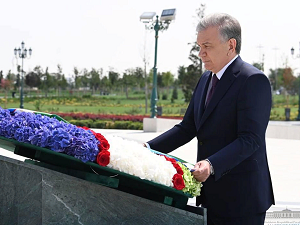Uzbekistan is one of the first Central Asian states to take active measures to combat climate change. In its climate policy, the country seeks to improve the resilience of the economy in the face of changing climatic conditions, as well as reduce the negative impact on the environment.
The issues of climate change and adaptation to new conditions are relevant for everyone, but especially acute for Uzbekistan, due to its special location and other features. It lies between the Karakum and Kyzyl Kum deserts, making it particularly vulnerable to changes such as rising temperatures, declining humidity, more frequent droughts, and rising sea levels.
Key Aspects
The President of Uzbekistan shavkat mirziyoyev has developed and implemented a number of measures aimed at combating climate change and adaptation in the most vulnerable sectors of the economy. Here it is necessary to highlight such fundamental points of activity as:
- One of the main tasks of the country’s climate policy is the sustainable development of agriculture. Through the use of modern technologies and innovative approaches, Uzbekistan has reduced the consumption of fresh water in agriculture through the introduction of drip irrigation and a micro-irrigation system. This allows not only to save resources, but also to reduce the negative impact on the environment, increasing the yield and quality of agricultural products.
- In addition to agriculture, the country is active in other areas such as energy, transport and industry.
- Projects for the development of renewable energy sources (solar and wind) are being implemented at a rapid pace. This reduces dependence on fossil fuels and reduces greenhouse gas emissions.
- Another important area of Uzbekistan’s climate policy is the conservation of biodiversity and the protection of natural resources. Uzbekistan has a rich natural heritage, including unique ecosystems and species of flora and fauna.
- The country is engaged in the restoration and protection of natural reserves, national parks and reserves, and also takes measures to regulate the use of natural resources.
Brief conclusions
Of course, the implementation of climate policy and the adaptation of measures in Uzbekistan is not a one-day task. This requires cooperation between government agencies, the business sector and the population of the country. In addition, it is important to take into account international regulations and agreements in the field of environmental protection and climate change.
In conclusion, it is necessary to note the indisputable fact that Uzbekistan is actively implementing and adapting measures to combat climate change in the most vulnerable sectors of the economy.












